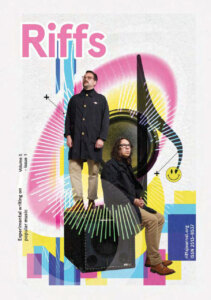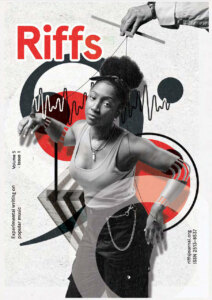arch
Call for Papers: Regulation of Old and New Media Forms in Africa
Conference on the Regulation of Old and New Media Forms in Africa
Birmingham Centre for Media and Cultural Research
Birmingham City University
May 2022
Location: Zoom
Conference Theme: Regulating African Digital Media
Increasingly more African countries are instituting laws, procedures, and policies, seeking to regulate the media ecosystem. Governments typically justify such approaches to regulation as a way to combat the negative consequences of online media usage, such as hate speech and mis/disinformation. This trend generally reflects the historical application of censorship laws that have targeted the critical press and journalistic autonomy (Obijiofor et al., 2016). The implications of this are considerable. What we are witnessing is the integration of two regulatory paradigms – for the traditional and digital media – into one, with the potential for state authorities to expand blanket censorship from media to citizen expression in ways that mirror the politics of regulation. A central issue at play here is the struggle over the appropriation and exercise of power over collective voices, with consequences for democracy, plurality, independence, dissent, and freedom.
No doubt, media and digital regulation have intensified in recent years across the globe in what has been described as the “regulatory turn” (Flew et al., 2021, p. 208). The aim, it seems, is to manage the disruptive effects of the usage of media technologies. What has been largely overlooked, however, is an overarching investigation of this trend in Africa. This is in spite of the reality that state interventions such as social media bans, which are becoming common on the continent, are disruptive in themselves. Meanwhile, the few scholarly collections which have examined separate angles of the subject have done so predominantly from the traditional media lens only (Chan-Meetoo, 2013; Sampaio-Dias et al., 2019). For instance, Chan-Meetoo’s (2013) edited collection considers how African journalists negotiate regulatory and ethical requirements demanded of them. Other works have looked at regional or linguistic peculiarities in traditional media regulation on the continent (de la Brosse and Frére, 2012; Limpitlaw, 2021). What has also been neglected is the fact that new media platforms are mainly domiciled in the West, bearing implications for digital sovereignty in Africa.
Furthermore, research centred on Africa has barely considered emergent regulatory practices that cover the traditional media, online harms, social media, blockchain technologies, privacy concerns, virtual reality, artificial intelligence, and the wider internet of things. This conference thus creates a space for researchers to build on previous scholarly work and to share, discuss and debate contemporary regulatory interventions in media technologies across Africa in attempts to regulate disruption, and their impact on societies. Topics may include, but are not limited to:
- Press and broadcasting regulation
- Social media regulation and online harms
- Online broadcasting regulation
- The politics of regulation
- Internet and social media bans
- Regulation as disruption
- Regulating/regulated disruption
- Platform governance and self-regulation in Africa
- Regulatory frameworks, methods, and methodologies
- Online privacy and data concerns
- Regulation, the balance of power, and digital sovereignty
- Punitive media registration
- African Union, multi-stakeholderism, and media regulation
- Regulating artificial intelligence and other new media technologies in Africa
We also invite conceptual papers and reflections on alternative, and perhaps homegrown approaches that can be exploited at the national and/or regional level on the continent to address the challenges of media and digital regulation.
Abstract Submission
Please send a 300-word abstract proposal for a 20-minute presentation by 14 January 2022 to regulationafrica@protonmail.com.
Proposers will be notified of the outcome of the selection by 7 February 2022.
Abstracts should be in MS Word format and should include name, position, institutional affiliation, email address of proposer(s), and a 150-word biography.
Conference Details
Conference registration will open in early April 2022 and the conference schedule will be released afterwards. The conference will be held on Zoom and will be organised weekly in a panel format in May 2022. To make this work, a single panel (90 minutes long) will be scheduled for each of the Tuesday afternoons (UK time) in May 2022. Further details on timing will be confirmed to selected participants.
Special Issue Publication
Shortly after the conference, we will invite full papers based on the presentations for publication in a journal special issue to be announced. In your abstract submission, please indicate whether you would like your contribution to be considered for the special issue publication. Interested contributors should please note that full papers will be requested by September 2022.
About BCMCR
The Birmingham Centre for Media and Cultural Research (BCMCR) was established in 2009 to develop excellent research as a core activity within the Birmingham School of Media. Our team of independent researchers at Birmingham Centre for Media and Cultural Research (BCMCR) generates work of internationally excellent standard. BCMCR aims to produce distinctive, collaborative work within the field of media and cultural research.
References
Chan-Meetoo, C. (2013) Media Ethics and Regulation: Insights from Africa. Bamenda: African Books Collective.
de la Brosse, R. and Frére, M. (2012) Media regulation in sub-Saharan Africa: trends and stakes in French-speaking countries. Ecquid Novi: African Journalism Studies, 33(3), pp. 74-92. https://doi.org/10.1080/02560054.2012.732259
Flew, T., Gillett, R. and Cole, R. (2021) Editorial. Journal of Digital Media & Policy, 12(2), pp. 207-214. https://doi.org/10.1386/jdmp_00059_2
Limpitlaw, J. (2021) Media Law Handbook for Southern Africa. Johannesburg: Konrad-Adenauer-Stiftung.
Obijiofor, L., Murray, R. and Singh, S. (2016) Changes in journalism in two post-authoritarian non-Western countries. The International Communication Gazette, 0(0), pp. 1-21.
Sampaio-Dias, S., Mabweazara, H.M., Townsend, J. and Osman, I. (2019) Practices, policies and regulation in African journalism: mapping a research agenda. African Journalism Studies, 40(3), pp. 1-9. https://doi.org/10.1080/23743670.2019.1750197

